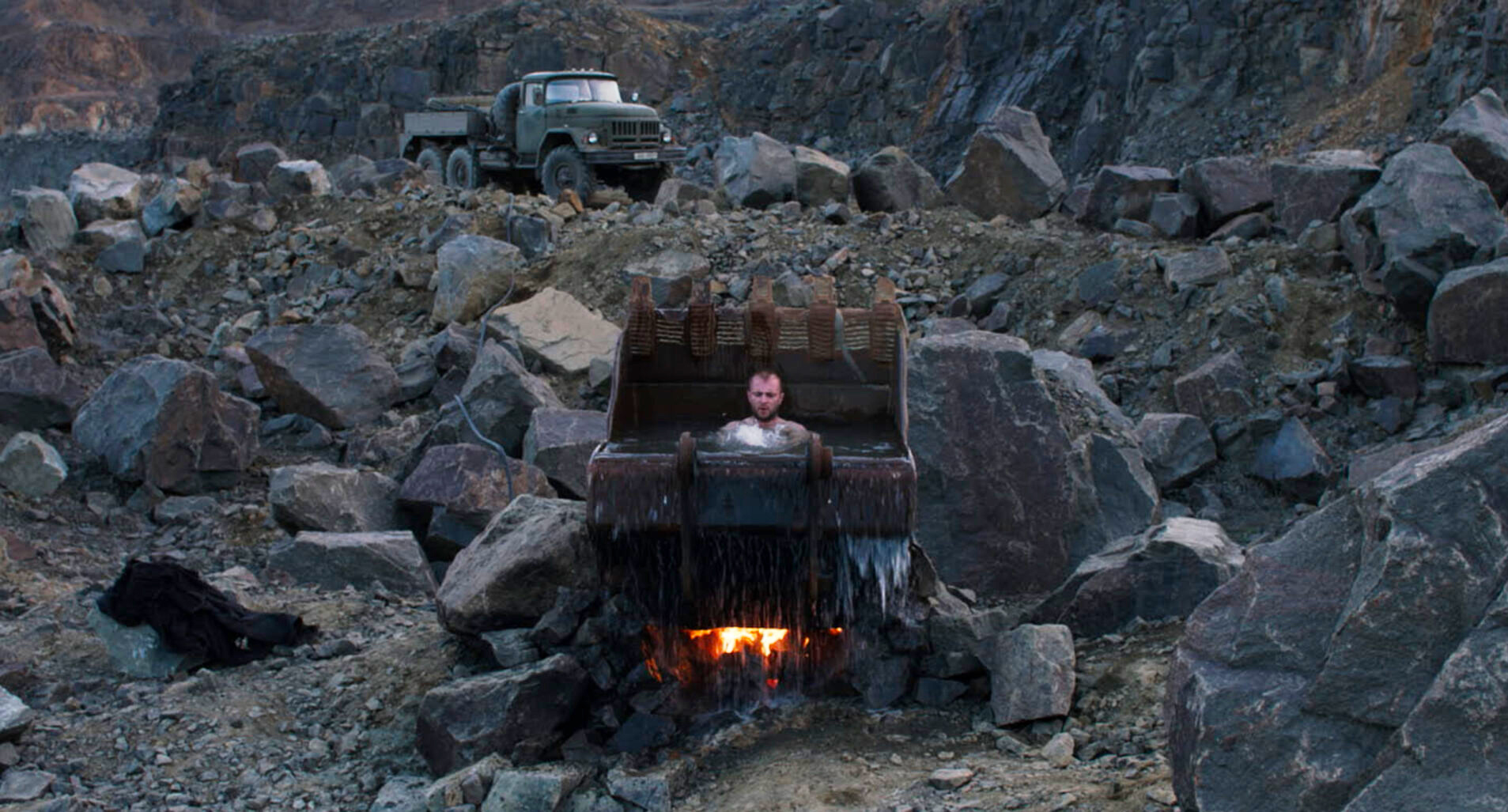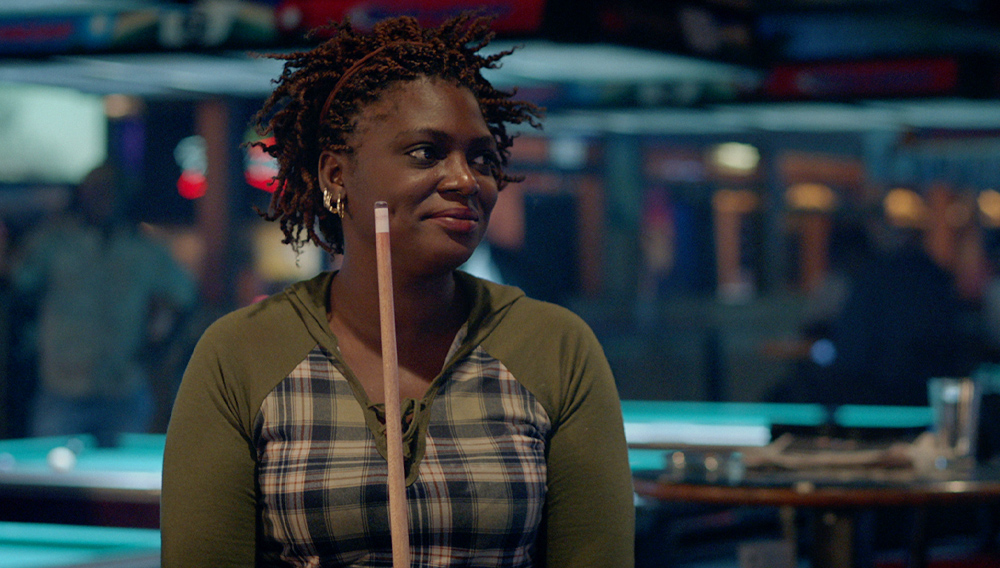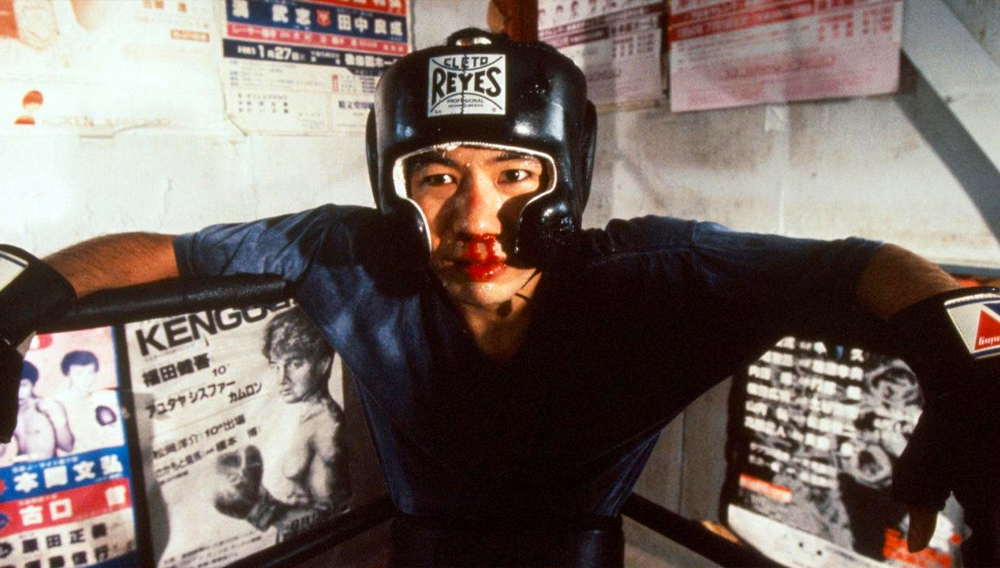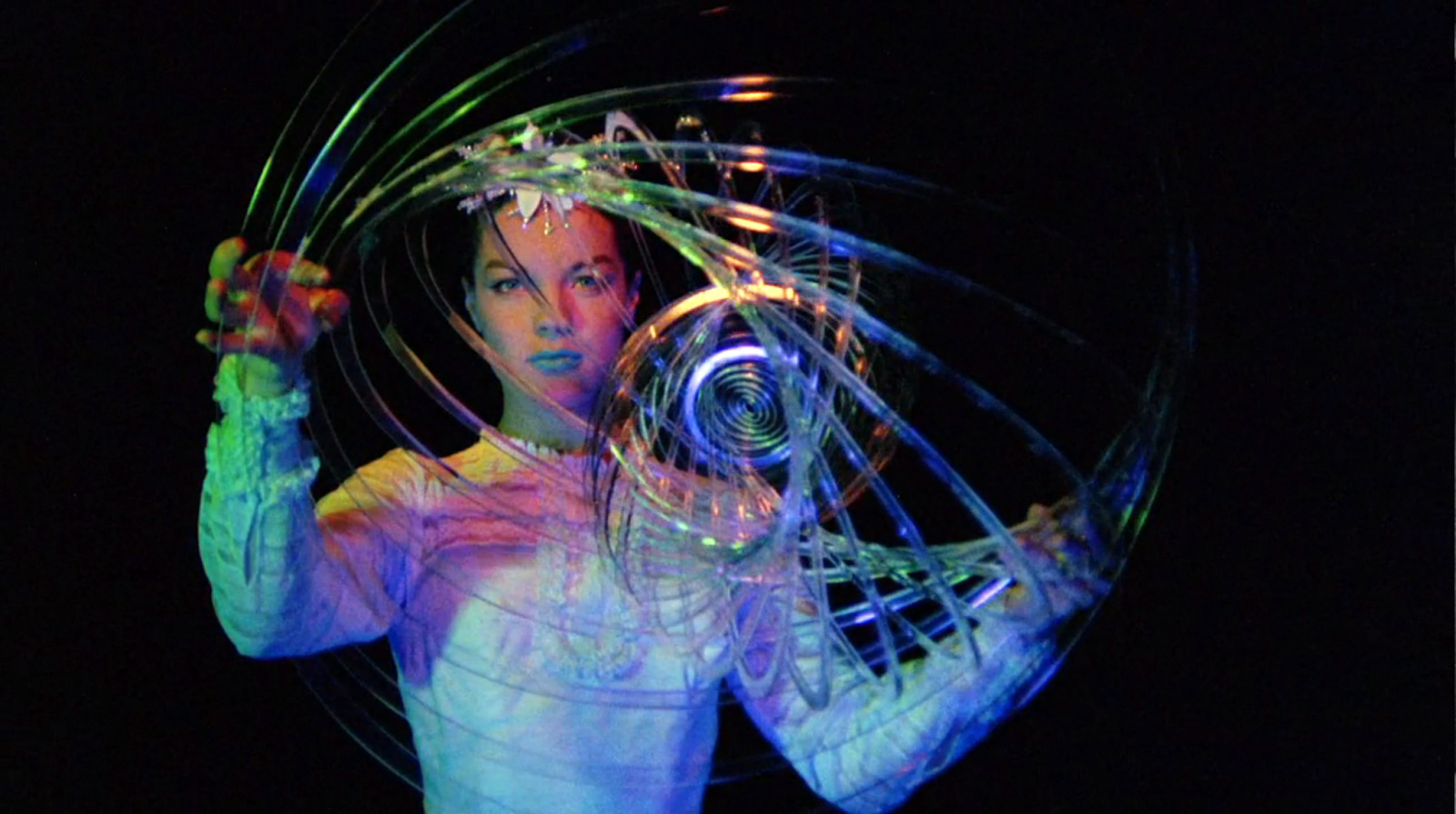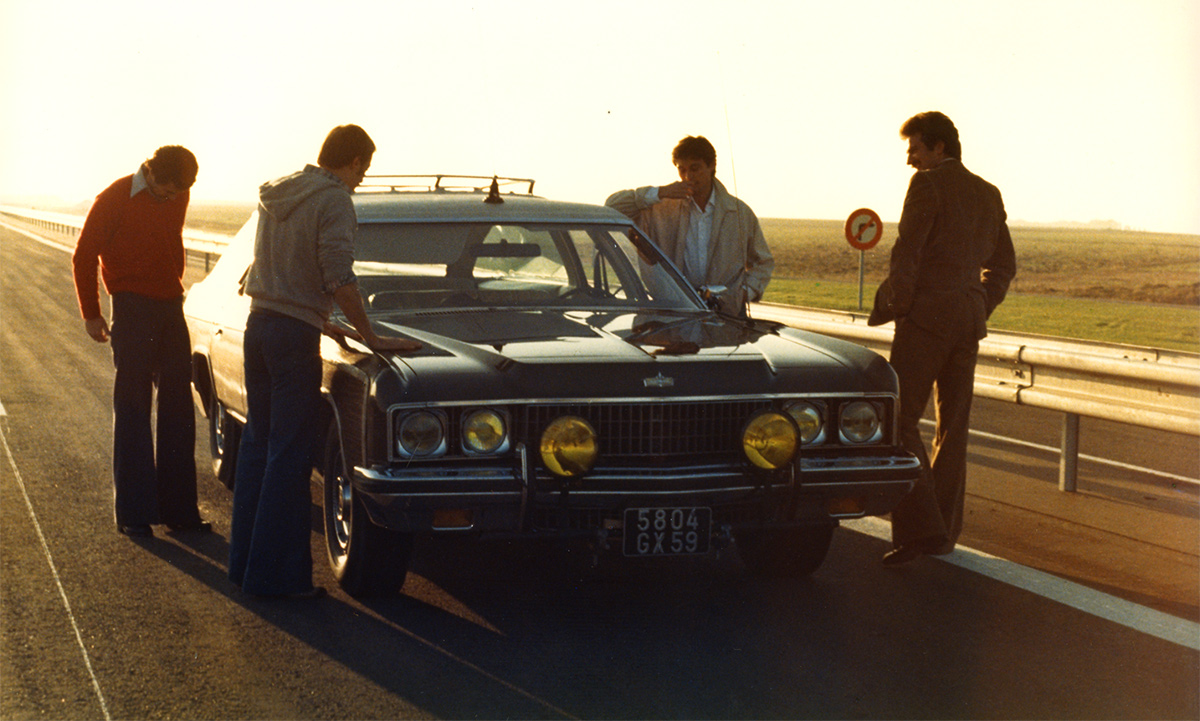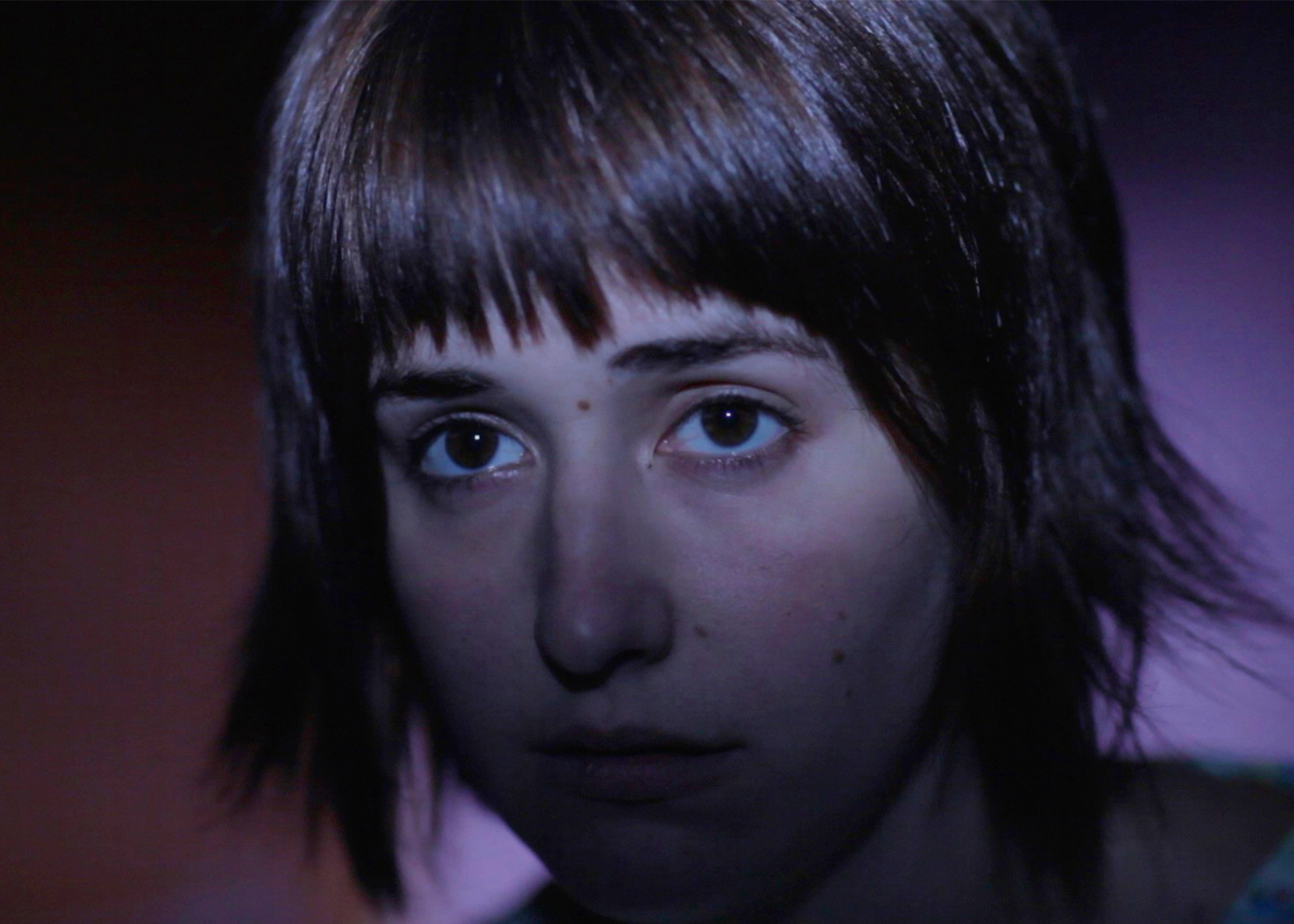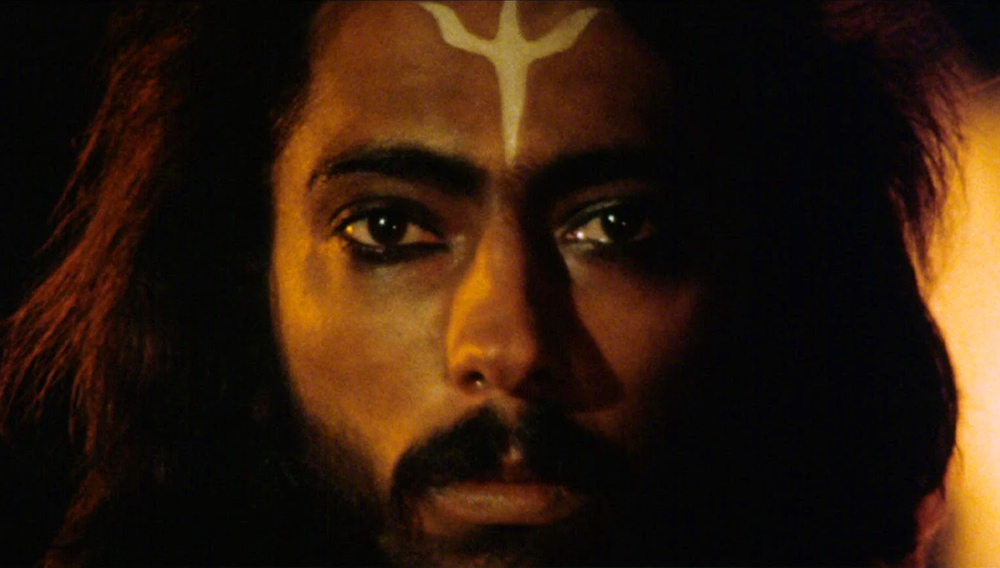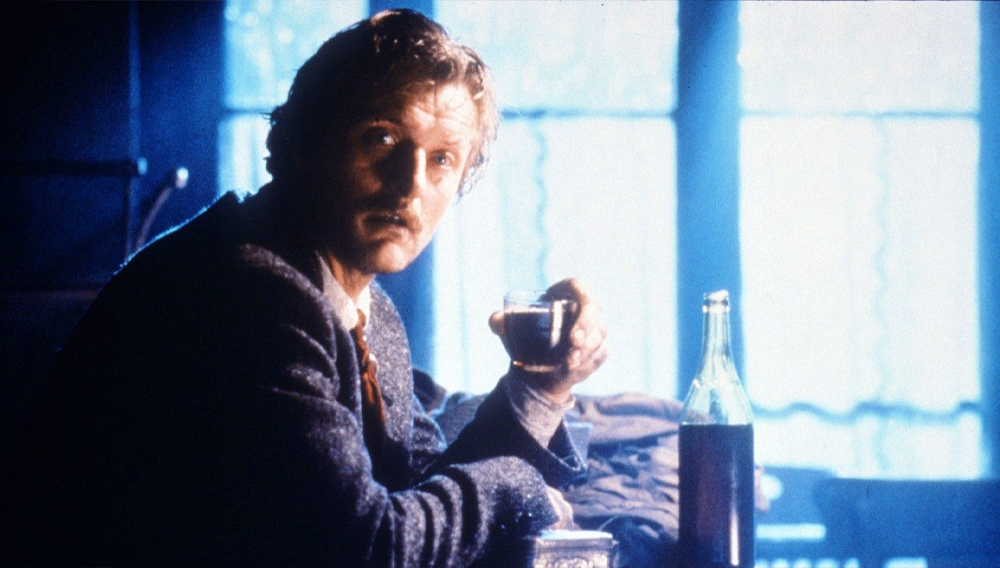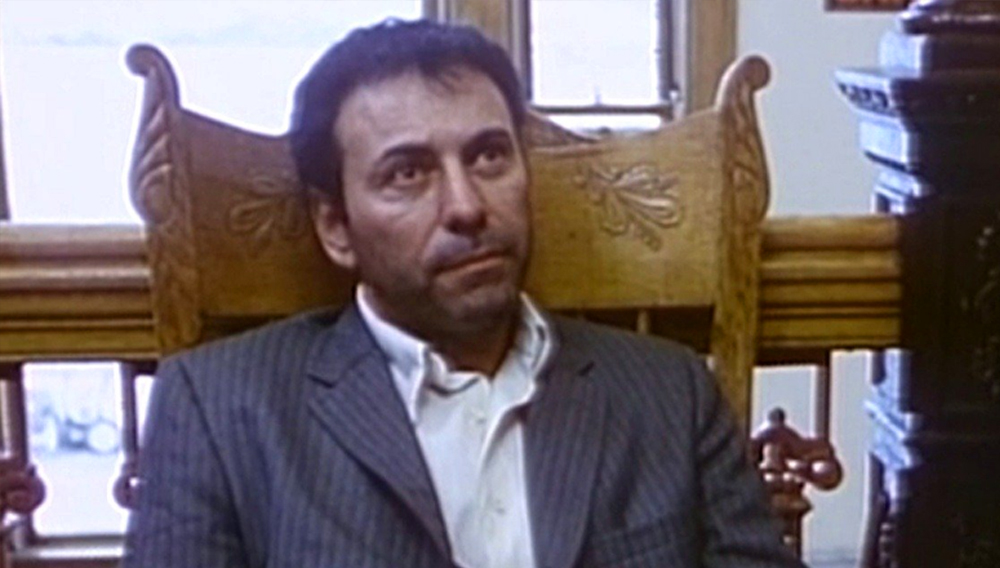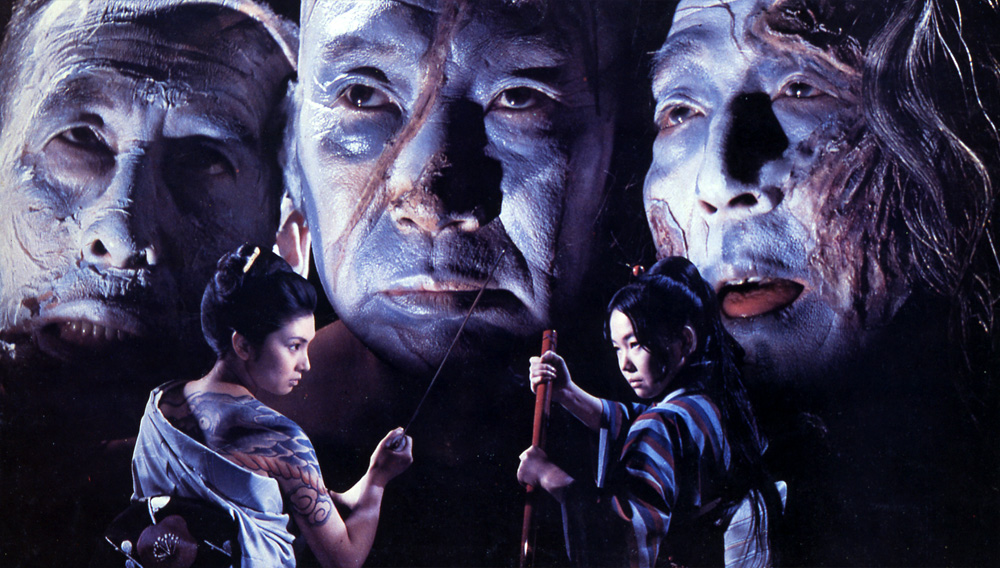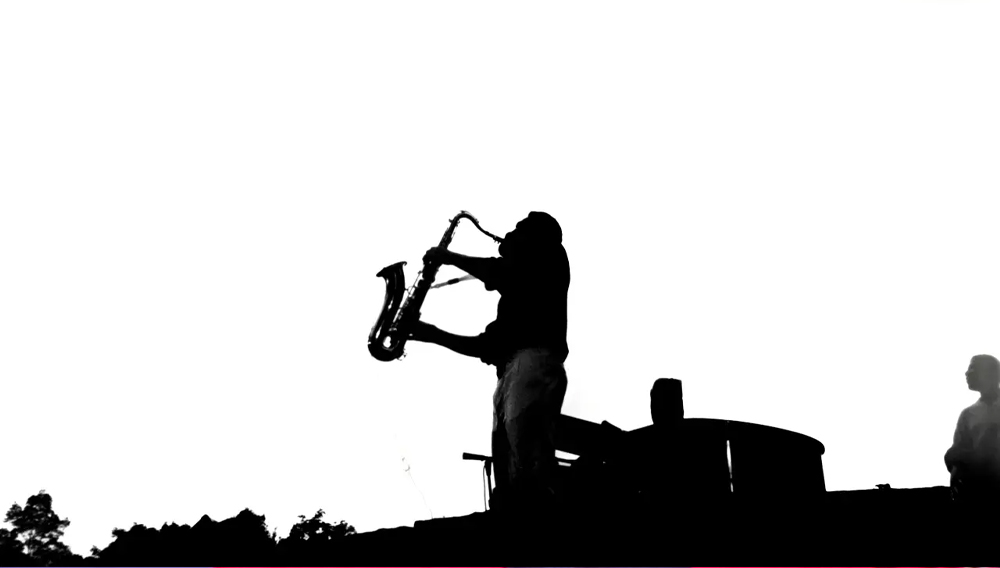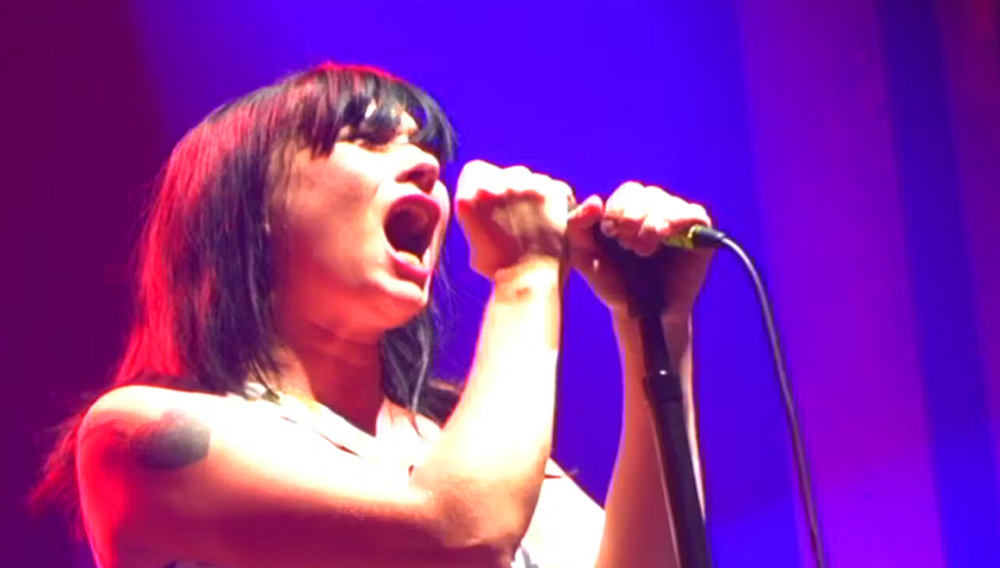
The minds that designed the school desegregation social experiment might not have imagined that one of their greatest achievements would be a band. And not just any band, but one that would rise from a mosh pit: the funk-ska-punk-sci fi-vaudevillian act that was (and somehow continues to be) Fishbone. Lev Anderson and Chris Metzler‘s Everyday Sunshine traces the group back to its unlikely origins in a bussed-to schoolroom of the ’70s and follows it to its even unlikelier present, through a quarter century of trials (literal) and tribulation (abundant). I got the chance to chat over email with the directors back in 2010 as they prepared to unleash their film and its characters on the San Francisco Bay Area.
Keyframe: Fishbone’s origins and evolution are fascinating, as told here. How did you and Lev first intersect with the band?
Lev Anderson: My dad was an eclectic music lover and bought the first Fishbone record. He liked it so much that he then took me to see a Fishbone concert when I was 10 years old. As you can imagine I jumped around a lot to Fishbone’s music at that age and as a result I have been a fan of the band over the years, including a college radio interview I did with them in the mid-’90s.
Chris Metzler: And so when Lev and I met at a film festival party here in San Francisco and he told me about this music documentary he wanted to make, I wasn’t so sold on the idea as both he and I agreed that most music documentaries suck. But when he then told me the backstory about these six black kids from South Central Los Angeles that got bussed to the white suburbs and quickly fell in love with punk rock I thought that ‘Man, that is a film I want to make too’ as I like stories of outsiders and what better outsider tale than the story of Fishbone? Smitten with the story we decided to go see the band perform here in San Francisco a couple of weeks later and approached the band that night after the show to see what they thought of the idea.
When Lev and I met at a film festival party here in San Francisco and he told me about this music documentary he wanted to make, I wasn’t so sold on the idea as both he and I agreed that most music documentaries suck. But when he then told me the backstory about these six Black kids from South Central Los Angeles that got bussed to the White suburbs and quickly fell in love with punk rock I thought that ‘Man, that is a film I want to make too’ as I like stories of outsiders and what better outsider tale than the story of Fishbone?—Chris Metzler
Keyframe: Do you feel Plagues & Pleasures on the Salton Sea is a bookend to this film on a shelf of California stories? Michael Fox described Salton Sea as brimming ‘with affection for these freaks in their freaky, freaky habitat’ in SF360….
Metzler: Most definitely, as both films not only share Southern California origins, but are also explorations of the collision of cultures taking place in the state and the weird, wonderful results that can be had. I like to think that both films are offbeat reflections on the subjective notion of success and failure against the backdrop of the American Dream.
Anderson: That is a shared interest we both have as filmmakers, as I am currently working on a new documentary about the City of Irvine, which is a different kind of freaky habitat, but the themes remain the same.
Keyframe: The way you tell it, Fishbone resulted from desegregation of the school system in Los Angeles, bringing African American kids from neighborhoods ‘walled-off’ by highways (and ones from middle-class neighborhoods, as well) together with white kids from the ‘burbs. How far along in the process did this insight come?
Anderson: That cross-cultural experience was one of the first things that drew us to the story, as we always felt that you really had to understand the band’s relationship with their city and politics to understand why a band like Fishbone even came to exist. Plus, the way they embraced their suburban experience really says a lot about how open-minded and eclectic the Fishbone guys already were as kids.
Keyframe: Why did you choose animation to go with some of the historical incidents? The band itself is self-described as ‘cartoony’ at times.
Metzler: The use of animation to illustrate the band’s childhood experiences just seemed like a natural choice as it helps to create the cultural context of the times and give you a flavor of the different eras the guys experience from the funky 1970s to the punk rock 1980s. And with the Fat Albert-style animation we thought that would not only be fun, but since the guys loved that cartoon growing up, we knew it would be an appropriate way to introduce the individual band members (and their bigger than life personalities) to the audience.
Anderson: And yeap, the band has struggled with a cartoony image at times, but that primarily comes from their general anything-goes attitude when on stage and their embrace of the Parliament Funkadelic aesthetic tradition.
Keyframe: I love its context in both well known and not-yet-overdiscussed historic moments: Reagan’s America, the Los Angeles crack epidemic, Rodney King riots. Can you talk about Fishbone as a reaction to its times, its variety of times, in short?
Metzler: You have to think, Fishbone’s biggest selling album was called The Reality of My Surroundings, so they were certainly personally and artistically entrenched in the greater context of their times.
Anderson: Beginning with the desegregation busing, the band did seem to have a unique relationship and perspective on the City of L.A. and social policies in general. Some of the band members also attended Black Panther breakfast programs as young children so they were very aware of the social issues surrounding them from a young age. Then going to school in the Valley and encountering the suburban punk scene and its reaction to Reagan, added another layer of experience that many shared in the ’80s. Then came the crack era and their music, which always had political undertones, became a bit more serious when they realized what was at stake in their communities. So while we did not delve too deep into those issues, telling the Fishbone story does allow us to talk about that often ignored history as each reflects and was shaped by the other.
Keyframe: The film is also about ‘the life of the musician’—a difficult one for most, particularly when you cover decades as this film does. Angelo’s living with his mother during the course of the film; others are struggling mentally, emotionally, economically. What most surprised you about the life of musicians? (I don’t want to give away some of those surprises, myself….).
Metzler: One thing that was a little surprising is that life on the road for a musician is not that fun and this is coming from someone who loves to travel, but when you film a musician moving from gig to gig, it’s more tedious than an adventure. While we did have a great time filming the band during two European and several U.S. tours, it is a lot of waiting around at hotels, clubs, gas stations and airports. Even though the guys do occasionally get out to see the cities they travel to, there is not much time so it is not nearly as glamourous or exciting as one would think.
Anderson: But we all did get to relax together lakeside in a small town in Austria for a short holiday break on tour, so there are the occasional perks.
Keyframe: What appeals to you, personally, about Fishbone’s music and what appeals to you about Fishbone’s other sensibilities (fashion, politics…)?
Anderson: The music is always invigorating and because they are so good at blending the genres of music, you never know what to expect. On stage, they consistently put on a good, high energy show so we were never bored even though we shot countless concerts. What we really like about Angelo’s fashion in particular (who is singled out by Gwen Stefani in the film) is that he combines this vaudevillian, punk rock, mod, church gospel singer circus clown attire as effortlessly as the band blends their styles of music. And he has been doing it from the time he was a teenager. He doesn’t follow style trends, he creates them. Put he seems to be one of the only people that can pull that style off.
Metzler: I was and continue be intrigued by the disparate personalities that make up the band. Just watching Angelo on stage, you can see a mad genius at work. Singing his ass off, a middle-aged stage diver, honking his saxophones, playing the theremin! The theramin?! Plus, I really like the idea that these guys were outsiders that really didn’t fit in anywhere and so they just decided to blaze their own path. Deciding to that and to continue to do that for 25 years is just something special that personally resonates with me. And now that we’ve made this film I’m in love with ska music and will join you in the mosh pit on any day.
Beginning with the desegregation busing, the band did seem to have a unique relationship and perspective on the City of L.A. and social policies in general. Some of the band members also attended Black Panther breakfast programs as young children so they were very aware of the social issues surrounding them from a young age. Then going to school in the Valley and encountering the suburban punk scene and its reaction to Reagan, added another layer of experience that many shared in the ’80s. Then came the crack era and their music, which always had political undertones, became a bit more serious when they realized what was at stake in their communities. So while we did not delve too deep into those issues, telling the Fishbone story does allow us to talk about that often ignored history as each reflects and was shaped by the other.—Lev Anderson
Keyframe: There’s so much here: archival images, celebrity interviews, location shooting. What aspects of the production were the most challenging?
Metzler: Making a feature documentary is always a challenge, but it’s a challenge you thrive off of. So with this being an independent DIY project we had to work within a very limited budget. A fairly standard tale in filmmaking, as we pretty much raised money, scheduled and shot interviews and shows, did all the research and tracking down of archival footage, went through all the legal hoops, negotiated most of the music licenses—all that and more—by ourselves. But we definitely had help along the way from generous collaborators that were either friends or fans of the band that have been able to contribute high quality work on a low budget. But really, it all comes down to a daily hustle to get things done with modest resources, lots of love, and caffeine. But if we had to narrow it down to one thing, I think we’d both agree that scheduling interviews with rock stars can be time consuming and challenging in itself because they have such crazy schedules.
Keyframe: What do you consider the band’s greatest legacy?
Anderson: The band was a trailblazing group for the now rapidly growing Afro-punk movement. They made it okay for black kids to sport mohawks and slam dance while also influencing so many other bands that made it bigger than they did: No Doubt, Sublime, Primus, Chili Peppers, Black Eyed Peas, Outkast, etc…. And the fact that the band has created a standard for live shows that they still live up to is something we hear about all the time. There have been a lot of people who were either serious fans or just saw Fishbone once in college who tell us that they saw them perform somewhere and have never forgotten that experience.
Metzler: Some critics may say that playing metal and ska at the same time turns people off that may only like one style, but that is their legacy. Fishbone could play anything and didn’t give a fuck about fitting into any industry-defined parameters. And on the best nights, I am not sure any other bands can really come close to the energy and musicianship. Nuff said.
The story was published October 8, 2010, in a different form in sf360.org when the film debuted in San Francisco.




